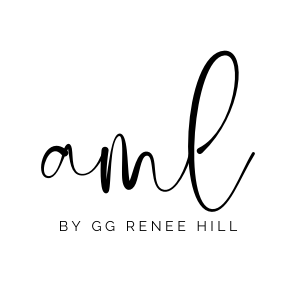a voice of your own
january 8 | weekly warm-up
One way to rediscover your writing voice is to practice writing to your intended audience instead of for them. The exercise this week is to write a reflection about what courage means to you (or you can choose some other theme that’s been on your mind) and write TO a specific audience or person. Close your eyes and develop a clear vision of who you are writing to, and set the intention to be as honest and unfiltered as you can. Write until you’ve said what you need to say. Later, record yourself reading it aloud and then listen to the recording. What words would you use to describe your writing voice in this piece?
Hi writers,
Over the past few weeks as we’ve been reflecting on the evolution of our writing journeys, have you noticed any circumstances or influences that have played a part in watering down your unique voice? Perhaps it was your third grade teacher who taught you how to write a proper five-paragraph essay. Maybe it was your job as an academic or financial analyst or lawyer where you had to strip the personality and imagination out of your words.
Your writing journey is an ongoing story of self-discovery and part of this is developing your voice. I read something recently in Writing Voice by Writer's Digest Books that resonated deeply: “Knowing you have a voice you feel comfortable with enables you to discover more things to say.” I’ve found that when I was worried about writing everything in a perfectly polished way, I felt restricted, blocked, and struggled to find things to say.
At the beginning of my writing career, I felt most alive when I was completely raw and unattached to traditional rules. Through blogging and self-publishing, I felt liberated by letting go of the rules I had to follow at school and work. I struggled when I started trying to sound more literary and author-ish, suppressing my personality to make my work more appealing to gatekeepers, leading to a lot of frustration and disillusionment. Here are a few factors that are helping me rediscover my voice:
Freewriting. My journaling practice has been helpful—using techniques like Julia Cameron’s morning pages technique from The Artist’s Way and Natalie Goldberg’s advice on freewriting from Writing Down the Bones. These practices teach us to value our messy, unfiltered thoughts and find flow.
Notice what you like to read and listen to. I love to read writers whose work reads like a stream of consciousness— Jamaica Kincaid, Virginia Woolf, Sylvia Plath, and some works by Toni Morrison and James Baldwin to name a few. I also enjoy trance-like, moody music. Think Sade, Jhené Aiko, Birdy, and Yuna, for example. This explains a lot to me about how my writing voice flows out of me, the rhythms my sentences make, and maybe the effect it has on the reader.
Finding topics I love to write about. Becoming a coach and facilitator has been a huge part of recovering my writing voice because it taught me how to let go and connect with my audience in such a pure and unfiltered way. I’m so passionate about creativity that my passion overrides my old need to say things perfectly. To keep up with the amount of content I create as a coach, I had to learn how to write the way I talk and let my passion be its own poetry.
Coaching and facilitating have had the biggest impact by showing me how to write to an audience instead of for an audience. It’s the difference between writing to share and be generous, and writing to impress and find validation. When I think about all of you, and the souls in my workshops, that’s who I’m writing to when I create content for my business. I’m writing to reveal as much as I can to make sure that you feel seen, understood, and supported. When I write personal essays for publication, I’m writing to others who have grown up with mental ill parents, or struggled with their own mental health challenges, for example. I’m not writing to the editor or agent, I’m writing to the person I want to help.
So that’s the exercise for this week. What happens when you set the specific intention to think of each piece of writing as a love letter to someone instead of an assignment to impress someone? Do the words come any easier? Do you sound more like yourself?

